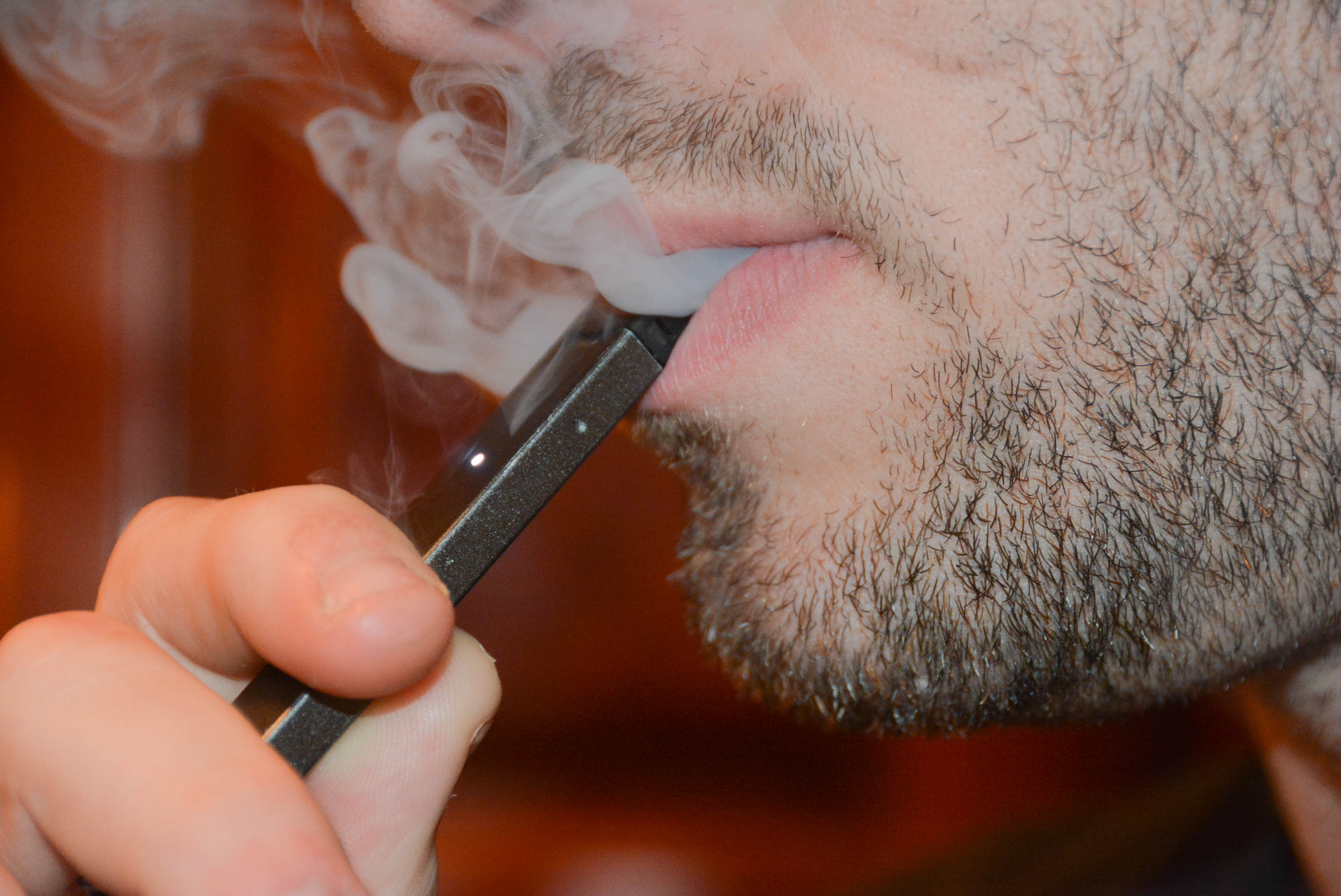Many students have walked through clouds of e-cigarette smoke before or have possibly even taken a few puffs themselves as vaping and other alternatives to cigarettes have increased in popularity. However, these new devices pose a major health risk similar to other forms of smoking.
JUUL, a brand of e-cigarettes, has recently become widely popular among young adults. They have dominated the U.S. e-cigarette market since 2014 and their sales have grown over seven-fold from 2016 to 2017.
According to the CDC, the U.S. Surgeon General has concluded that e-cigarette use among youth and young adults is a public health concern and that e-cigarette aerosol is not harmless. This battery-powered device heats a nicotine-containing liquid to produce an aerosol that is inhaled. According to the CDC, a single JUUL pod contains as much nicotine as a pack of 20 regular cigarettes.
As JUULS’s popularity grows, so does the e-cigarette’s social media presence. The National Association of Student Personnel Administrators General Assembly’s “The Young and The Vapeless” conference session, led by peer health educators from University of North Carolina Wilmington, explained that social media only shows the “vocal minority [that uses e-cigarettes]” and not the “silent majority [that does not use e-cigarettes].”
When seeing these social media posts that promote smoking and vape-culture, we should recognize that these posts are not the norm, and instead promote healthier lifestyles overall.
Based on the National Collegiate Health Assessment administered at KSU every two years by the American Collegiate Health Association, there is a significant gap between perceived and actual use of e-cigarettes at KSU. When students were asked how many KSU students they perceived never used e-cigarettes, they responded 11 percent. However, 81 percent of students reported never using e-cigarettes.
According to the peer health educators, the disposal of the e-cigarette cartridges and batteries into the environment can lead to pollution, and the chemicals and aerosol of JUULs go directly into the air, which is also pollution. Thus, not only are they hazardous for our immediate physical health, but they are also an environmental health concern.
The peer health educators from UNCW also explained that long-term use of nicotine can lead to “heart disease, COPD, cervical cancer, and lung cancer” as it can negatively affect the “brain, heart, lungs, and stomach.” Their opinion was that all universities should proactively work towards having a smoke-free campus, and explained that individual universities cannot adopt smoke-free campus policies until the entire state university system has a smoke-free campus policy.
Fortunately, in March 2014, the Board of Regents of the University System of Georgia adopted a tobacco and smoke-free campus policy to make USG completely tobacco and smoke-free effective Oct. 1, 2014.
JUULs and other e-cigarettes are extremely harmful to one’s health as the nicotine poses detrimental long-term health risks and they create pollution in our environment. We will need to further enforce our smoke-free campus policies to ensure that we are building an environment that supports a healthy community. Because they threaten student wellbeing, students should avoid JUULs and other forms of e-cigarettes.




